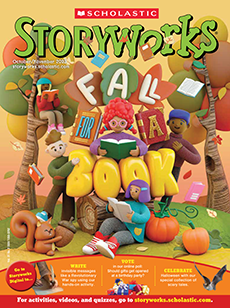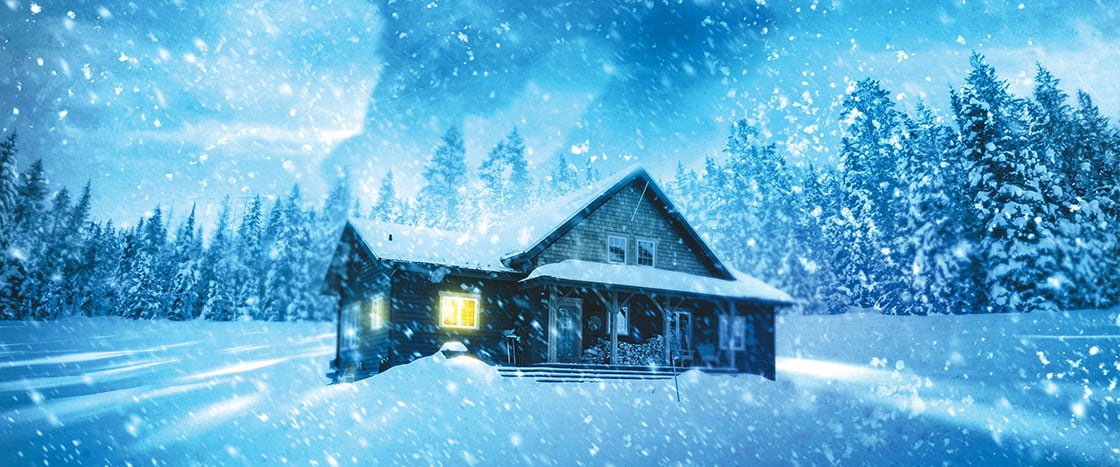My great-great-grandfather’s ancient snowshoes and wooden poles have hung over the mantelpiece for nearly a hundred years. I take them down and carry them outside. The snowshoes are as long as I am tall. They are made out of curved wood and strips of woven rawhide. I buckle them on and use the poles to get to my feet. I look across the lake.
Once a week, Henry drives his snowmobile around the lake to check on us. Last week, he drove directly across the ice. He said it was still soft in the middle, but he was able to skip over the gap by giving the snowmobile full throttle and keeping it straight. He thought it would be solid in a few more days.
It’s starting to snow again. Feels like a blizzard is coming soon. I’m not afraid of getting lost in the whiteout. If I follow the shore, I’ll be fine. What I’m afraid of is not getting help for Gramps before the weather makes it impossible for help to arrive. It will take me at least two hours to make my way around the Thumb to the Bensons’. If I walk across the lake, I’ll be there in 20 minutes—if I don’t fall through the ice.
The ice sounds like it’s cracking beneath the powdery snow. I plant the poles in front of me before every step. I want to turn back, but I don’t. There is only one way for me, and that is forward.
The wind howls, sweeping the lake to bare ice, making it easier to judge the thickness. I glide along, but this doesn’t last. The ice begins to soften. Soon I’m walking through slush up to my ankles, but I continue on, stubbornly, foolishly, holding my breath, waiting for the cold plunge, which doesn’t come. Instead, Henry Benson on his snowmobile zooms from the mist like a superhero on ice. He throttles past as if he hasn’t seen me and comes to a sliding stop 50 feet beyond where I’m standing, in shock at his sudden appearance.
“You’re five steps from death!” he shouts. “Turn around. Walk toward my headlight. Slowly. Get on solid ice.”
I tell him about Gramps as I walk.
Henry’s on his cell phone before I reach him, talking to 911, explaining the emergency. Next, he calls his wife, Rose, and tells her what’s going on.
He pockets his phone and gives me a grin. “Rose will call your mom. Hop on. Let’s go see how your grandfather is.”


